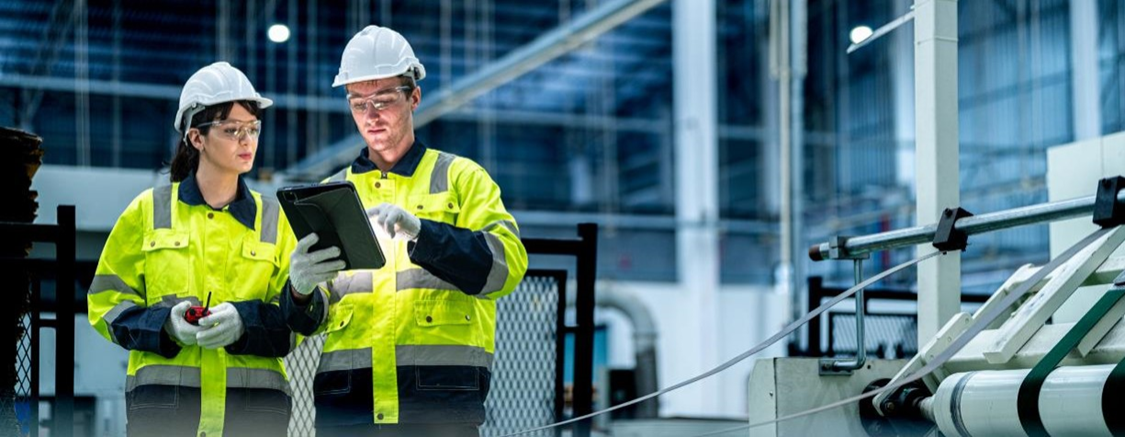How to Become an Engineer
Explore the pathway to becoming an Engineer, covering required skills, qualifications, and experience, along with typical entry points and career development opportunities.

What Does an Engineer Do?
An Engineer uses technical skills to solve problems and create or improve on products. A proficient Engineer will have a high level of skills, including critical thinking to resolve issues, communication for working with their peers, and an understanding of mathematics and physics.
It is important for an Engineer to have a degree in their specialised field of engineering or learn via an apprenticeship. An Engineer is in charge of overseeing whatever project they are working on, relaying information to other workers and making sure that they are taking the correct steps to complete the project correctly.
Browse our range of Engineer jobs, or our list of manufacturing and production roles.

Dress Code
Usually, an Engineer will dress in business casual attire, which includes dress shirts or blouses, dress pants, knee-length skirts or dresses and closed-toe shoes. Everything should be neat and presentable.
Engineer Job Responsibilities
Engineers have various responsibilities, including designing, building and maintaining products and systems. They are responsible for testing that products are safe and effective and will be present for the entire project to make sure building, testing and analysing are all done to a high standard.
Engineer Tips
Focus on achieving the right qualifications. Since there are so many different sectors of Engineering, know which one you are most interested in and earn your qualifications or find an apprenticeship in that area.
Work on your essential technical skills by researching design software and improving your mathematics skills as much as possible.
Qualifications and Skills of an Engineer
An Engineer must have critical thinking skills and technical knowledge, as well as a qualification achieved at higher education.
Educational Requirements
To become an Engineer, having a bachelor’s degree in a related field is required. Usually, these are achieved through a university, which will consist of a four-year course in your selected field.
Alternatively, there are also opportunities in Engineering apprenticeships, which will help you achieve the skills and qualifications you need while working as an Engineer.
Before considering becoming an Engineer, make sure you have the correct qualifications, as there are several specialised fields for Engineering, such as mechanical, chemical, or computer engineering.
Critical Thinking Skills
As an Engineer, it is important to have problem-solving and communication skills to help you complete complex problems and adapt to new challenges.
An Engineer should be creative, with an ability to think outside the box and come up with solutions to complex problems using analytical thinking. It is also important to reflect and improve on your previous work, collaborate with peers and seek mentorship to advance your skills.
Technical Knowledge
Having technical knowledge to work on complex projects is essential for an Engineer. You will need strong mathematics skills, an understanding of scientific principles, and proficiency with engineering software.
Understanding software (such as CAD) will also require some knowledge of design methodologies for creating products, services or systems as an Engineer.
Some Engineers will need technical knowledge concerning their specific engineering field, such as mechanics or electronics, which will have their own additional software and principles to follow.
Engineer Job Duties
It is an Engineer’s duty to design and develop products for a company. These products will need to be tested before they are sold, and an Engineer is expected to oversee all aspects of the project.
Design & Development of Products
Engineers will need to use their acquired skills and knowledge to design products using design software. They will need to consider any issues that could happen and troubleshoot these before presenting the design.
After the design process is complete, it is then up to the Engineer to oversee the project through all stages of development, including testing, optimisation and any collaboration. It is essential to be able to communicate well through this process, taking feedback from peers and solving problems when they arise.
Conducting Tests
Once a product is designed, it is important to test it so that it is fit for its purpose. This means developing each test that needs to be done on the product to make sure that there will be no further issues and analysing the data.
It is important for an Engineer to be able to problem solve, as issues will arise that need fixing, and it is part of their job to create alternatives to fix any problems. All aspects of testing will need to be recorded for later reflection and analysis.
Overseeing Projects
It is the Engineer’s responsibility to oversee the project through all stages of development. This starts with the design and continues with the execution, testing, and monitoring of the project until completion.
An Engineer will need to manage the team members who will work on different aspects of the project and seek advice when budgeting. There are many different aspects to oversee, including risk management and quality assurance. An Engineer must consider everything while overseeing their project and making it successful.
Engineer Career Progression and Advancement
With enough experience as an Engineer, it is possible to progress into Senior Engineer roles. There are also specialist fields of Engineering that might be of interest.
Senior Engineer Roles
To progress into a Senior Engineer role, it is important to gain substantial technical skills and expertise in your field. Demonstrate your leadership capabilities by taking on complex projects and consistently delivering high-quality work.
To become a successful Senior Engineer, you will need to take the initiative to contribute to the broader company goals and master the technical fundamentals to improve your results.

Field Specialisation
There are many fields to specialise in as an Engineer, such as Civil Engineering, which focuses on infrastructures like roads, bridges and water systems, or Aerospace Engineering, which involves designing and building machines that fly.
If you’re interested in moving into a specialised field, make sure to do your research and look into additional qualifications, as these fields will have their own required skills that won’t be taught as a generic Engineer.
Browse All Engineer Roles at Blue Arrow
FAQs on Becoming an Engineer
How Long Does It Take to Become an Engineer?
It can take between 4 and 10 years to become an Engineer in the UK. This depends on the type of engineering, education and work experience.
What Qualifications Do I Need to Be an Engineer?
You usually need a degree or A-levels to become an Engineer; these qualifications include mathematics, physics and a degree in engineering.
What Are the Highest-Paying Engineer Roles in the UK?
The highest-paid engineering roles in the UK are Nuclear Engineering, Data Engineering, Aerospace Engineering, Chemical Engineering, and many more.
Is Engineering a Growing Industry?
Engineering is considered a growing industry, with a high demand for skilled Engineers across various sectors. This is due to rapid technology advancements, which offer great opportunities for Engineers.


